祝MM誌2020年間BESTワールド・ミュージック部門1位!
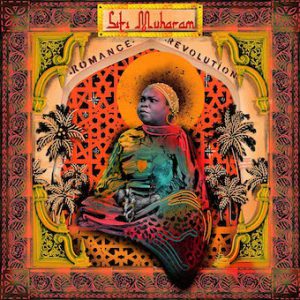
>https://bunboni.livedoor.blog/2020-07-30(無断リンク陳謝&感謝!)
あの世界最長老とも言われた女性歌手、故ビ・キドゥデ (?-2013) が大いに影響を受けたターラブ初の女性歌手にして、ターラブ初のレコーディング歌手(インド録音)、シティ・ビンティ・サアド (1880–1950) のひ孫さんだという、ザンジバルのシティ・ムハラムのデビュー作とのこと。バックをつとめるのは、ターラブの革新グループ、マトナズ・アフダル・グループで、そのリーダー/ ウード奏者の>ムハンマド・イサ・マトナがディレクション&アレンジを全面的に担当しているそうです。MM誌8月号で、深沢美樹さんも紹介されていましたけど、それまで、アラビア語で歌われ、男性歌手のみの世界だったターラブを、社会批判も交えスワヒリ語で歌った革新者だったシティ・ビンティ・サアドの精神を現在に受け継ぐような方向性で行われた録音とのこと。
“ON THE CORNER” のレーベル・オーナーで英国のDJ Pete OnTheCorner によるプロデュース作品ですが、采配のみに徹し、英国の女流管楽器奏者によるバス・クラリネットやキーボード奏者、北欧のベーシスト(コントラバス)等によるサポートはありますけど、音楽的にはマトナズ・アフダル・グループによる、ザンジバル・メイドと言うべきでしょうね。
この小編成ながらツボを押さえ飽かせない、変化に富んだ伴奏のあり方、そしてシティ・ムハラムの歌い口に漂う複雑なニュアンス、アラブ由来の節づかいに漂うインド洋ならではの飾り気のない情感、夕陽を照り返す海原を眺めるような不思議な無常観?とでも言いますか、アジアともアラブとも、アフリカともつかない、ターラブならではの情緒を、これまた無常を爪弾くようなウードの音色が受け継いで、そこにカヌーンの漣が寄せては返す感じ、もう、溜息ものです。
1 Machozi ya Huba 4:39
2 Sikitiko 7:44
3 Pakistan 6:36
4 Nyuki 5:09
5 Kijiti 6:59
6 Alaminadura 4:43
7 Ashikibaya (Sam Jones Construct) 2:36
8 Mandira 4:39
Backing Vocals – Matona, Nima Ame Komloo
Bass Clarinet – Tamar Collocutor
Contrabass – Stian Andersen
Qanun – Gora Mohamed Gora
Percussion – Fadhil Mohamed Mtuteke
Percussion – Magnus Mehta
Keyboards – Sam Jones
Music Director, Violin, Oud, Vocals – Mohammad Issa Matona
Vocals – Siti Muharam
Siti Muharam has the ‘Golden Voice’ of Zanzibar. Following in the pioneering footsteps of her Great Grand-Mother, Siti Binti Saad was no easy choice for Muharam. With the guidance of this album’s Music Director, Matona’s and a tip-off from Andy Jones (film maker that documented and positively influenced the life and death of Bi Kidude )
Muharam’s golden timbre has been allowed to soar for the world to hear. On her song is carried the legacy, lyricism and odyssey of the ‘Mother of Taarab’, her Great Grand-mother, Siti Binti Saad.
The production of this album was able to reference Siti Binti Saad’s times and bring in the percussive Kidumbak: style and strip away Taarab’s formal layering to give a feel of the eclecticism of Zanzibar’s swahili street culture that influenced Siti Binti Saad.
Sam Jones’ production, and studio overdubs have let Siti Muharam’s golden voice ensure the legacy of swahili romance and music of her Great Grandmother live on.
‘Siti’ is an arabic prefix meaning ‘lady’ and this record reignites the passions of the trailblazing Siti Binti Saad and the golden timbre of Muharam, her descendant and heir apparent to a singular, artistic legacy.
This ‘Siti’s of Unguja’ story begins with Siti Binti Saad’s birth in 1890 in the small fishing village of Fumba (on Unguja, the main island of the Zanzibar archipelago) to parents who had been freed from slavery.
“Siti Binti Saad is like a holy text for Zanzibari Taarab.
Over the last fifty years the music shifted back to more formal times.
More recently, Bi Kidude worked to keep Siti Binti Saad’s legacy alive and, although musically different, she used some of her distinct scales. Bi Kidude connected with me because of the shared love for these scales.
The mood and times have changed and once again this essence is alive and with the young people. The groove of the original with the mood of today.
From meeting in a rehearsal studio in Dhow Countries Music Academy to the completion of a recording in ten days, it has been hard but now we’re in a new place. A band and a sound have come to life.
When teaching traditional music, it’s difficult to prepare students for recording and performance, as the facilities and opportunities are rare.
I know that all the musicians, even myself, have grown and risen.
Siti Muharam especially. For me, she was a lost artist. I have tried to help her keep the name of her great-grandmother alive but was often alone.
This project gave her an opportunity to embrace her Great Grand-mother’s legacy and to see how important Siti Binti Saad is. It also allowed her to see that her own golden voice is a blessing in itself. Fadhil, Gora and Nema all gained from this project and together we’ve grown.
This record is deeply personal and yet tells a history. Take ‘Nyuki’, which was my father’s song, who himself was a student of Siti Binti Saad, learnt her scales and her way with melody. On ‘Siti’s of Unguja’ we found the original feeling, the melodies, the ways that she innovated and connected Taarab to the people. The past has helped us find a future sound, so a new generation can go with the groove whilst carrying the method.
The sound is new, although, in a way, it’s awoken something real that had been forgotten from the time of Siti Binti Saad. A new taste, a beautiful taste of the people of Zanzibar. It’s what my people will like and this record will reach them and audiences overseas. This makes me happy.
Zanzibari ears will hear how fantastic this record is. It’s a rare thing in Zanzibar to have such quality in lyrics and melody; some of the sounds on this record were dying.
Siti Muharam’s golden voice carries the essence of Siti Binti Saad and her connection with Zanzibari culture.
The project came about with the assistance of Fumba Town Development, a groundbreaking project that is providing sustainable homes to a new generation on Zanzibar built in line with the principles of permaculture. The Dhow Countries Music Academy (DCMA), OntheCorner Records, Soundthread and The British Council.
〜メーカーインフォより
▽参考 / シティ・ビンティ・サアド

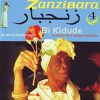 BI KIDUDE / ZANZIBARA 4 , THE DIVA OF ZANZIBARI MUSIC
BI KIDUDE / ZANZIBARA 4 , THE DIVA OF ZANZIBARI MUSIC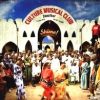 CULTURE MUSICAL CLUB, ZANZIBAR / SHIME !
CULTURE MUSICAL CLUB, ZANZIBAR / SHIME !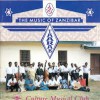 CULTURE MUSICAL CLUB / THE MUSIC OF ZANZIBAR 4, TAARAB
CULTURE MUSICAL CLUB / THE MUSIC OF ZANZIBAR 4, TAARAB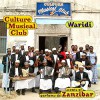 CULTURE MUSICAL CLUB / WARIDI
CULTURE MUSICAL CLUB / WARIDI